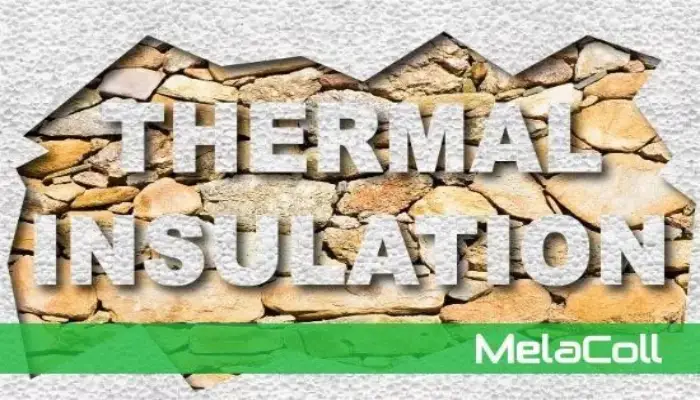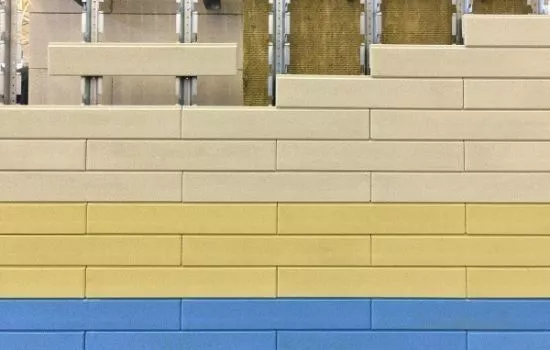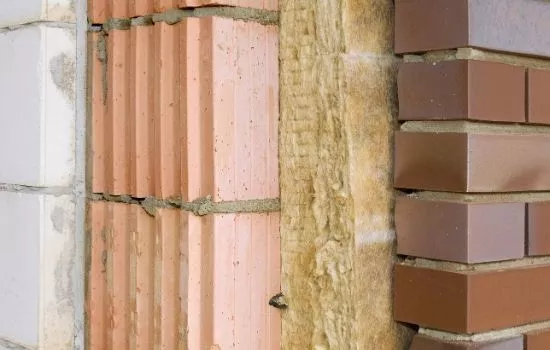
Building energy consumption is a major consumer of energy. In the building maintenance structure, the exterior wall of the building accounts for more than 15% of the total energy consumption of the maintenance structure. Therefore, external wall insulation has become the focus of building energy conservation. Redispersible polymer powder on EPS is also an area worth studying. The External Wall Insulation System, hereinafter referred to as EIFS, is a coating layer constructed on the outside of a building’s external wall. It provides thermal insulation, weather resistance and rich finishes in the form of an overall multi-layer composite system.
The advantage of external wall insulation is that the thermal insulation system is placed on the outside of the external wall, which greatly reduces the temperature difference that the main structure bears, protects the structural wall, and can effectively eliminate
cold (hot) bridges. It also helps to extend the structural life of the building. The external thermal insulation system of an Expandable Polystyrene (EPS) foam-pallet thermal insulation mortar is composed of an interface layer, thermal insulation layer, protective layer and finish layer.
It has the characteristics of good thermal performance, convenient construction, and the ability to adjust the wall thermal resistance and engineering cost by changing the density and thickness of the thermal insulation mortar. This article primarily discusses the effect of redispersible polymer powder on EPS foam-pallet thermal insulation mortar.
1. Test materials
Wacker polymer; 0.5% cellulose ether; 0.3% starch ether; air-entraining agent; water-repellent 0.2%; polypropylene fiber; lignocellulose; cement; fly ash; active silica; heavy calcium; EPS foam-pallet
The dosage and serial number of RDP (Wacker) polymer:
#1: 0.5%; #2: 1.0; #3: 1.5; #4: 2.0; #5: 2.5; #6: 3.0
2. Result Ana of redispersible polymer powder on EPS thermal molysis
2.1 The impact on the strength of thermal insulation mortar
The highly flexible and highly elastic polymer network film formed by redispersible polymer powder. Redispersiblr polymer powder on EPS can significantly improve the performance of the thermal insulation mortar, especially the tensile strength. When an external force is applied, due to improvements in the overall cohesion of the mortar and the flexibility of the polymer, the occurrence of microcracks will be offset or slowed down.
From Table 1, the tensile strength of the thermal insulation mortar increases with the increase of the dosage of Wacker polymer; the flexural strength and compressive strength decrease to a certain extent with the increase of the dosage of RDP, but it can still meet the requirements of external wall finishes. The relatively small ratio of bending-compressive strength reflects the greater flexibility and deformation performance of the thermal insulation mortar.
| Item | Dosage of RDP | |||||
| 0.5 | 1.0 | 1.5 | 2.0 | 2.5 | 3.0 | |
| Tensile Strength/MPa | 0.08 | 0.13 | 0.21 | 0.26 | 0.33 | 0.34 |
| Compressive Strength/MPa | 0.55 | 0.51 | 0.40 | 0.37 | 0.35 | 0.31 |
| Flexural Strength/MPa | 0.39 | 0.32 | 0.23 | 0.21 | 0.18 | 0.14 |
| Ratio of Bending-compressive Strength | 1.42 | 1.59 | 1.74 | 1.80 | 1.97 | 2.18 |
2.2 The dosage of RDP and the workability of mortar
The test results show that with the increase in the dosage of RDP, the cohesion and water retention are significantly improved, and the workability is optimized. When the dosage of RDP reaches 25%, it can fully meet the construction needs. If the dosage of RDP is too high, the viscosity and fluidity of the EPS foam-pallet thermal insulation mortar will be too high, the resulting materials will not be conducive to construction, and the cost of the mortar will increase.

3. Conclusion
The composite system of redispersible polymer powder (RDP) and other adhesives provides excellent flexibility and greatly improves the bonding tensile strength and construction performance of EPS foam-pallet thermal insulation mortar.
When the dosage of other adhesives is fixed, adding 2.5% redispersible polymer powder on EPS can produce the high-performance EPS foam-pallet thermal insulation mortar with a dry density of 232kg/m3, the thermal conductivity of 0.059 (W/(m⋅K)) and tensile bond strength of 0.33MP.
Our Mikrant™ redispersible polymer powder can replace Wacker RDP. The addition of Mikrant™ RDP product can provide the following improvements to EPS thermal mortar:
- Improved mortar strength and flexibility

- Enhanced water retention and extended working time
- Optimized product consistency and rheology
- Improved hydrophobicity
- Improved workability


Leave a Reply